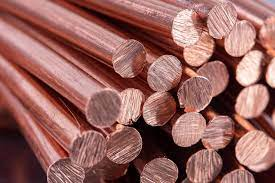Copper is an important material that has a wide range of applications from electronics, to plumbing, to transportation and beyond. Many industries rely on the versatility and reliability of copper, and it is the third most-used metal in the modern world, after iron and aluminium.
Here are four industries that benefit from using copper.
One: Copper in plumbing
Most plumbing systems depend on a network of copper pipe to move water and heat from one point to another. This is because copper pipe is naturally very resistant to corrosion and its malleability ensures that it can be easily moulded to fit any plumbing system.

Indeed, copper has been used in this way for many centuries, and even more modern plumbing fixtures such as air source heat pumps rely on copper pipe for the transportation of heat around the home.
Two: Copper in transportation
Copper is a vital component in the mechanical elements of petrol-based cars. Its ability to conduct electricity whilst being resistant to corrosion makes it the ideal material in brake lines, gearboxes, and other elements of car engines. It is even utilised in more modern electrical vehicles as part of the battery and electrical charging system.
Three: Copper in electrical systems
According to the Encyclopaedia Britannica, copper is an ‘unusually good conductor of electricity and heat’. This is why copper is such an essential element in electrical items, particularly electrical wiring. Compared to other conductors, copper is more efficient at transporting electrical currents, and also has the necessary malleability and durability required to make it a suitable material for the production of wiring.

Four: Copper in hospitals
The use of copper pipe in hospitals is firstly paramount in ensuring efficient plumbing and heating systems are in place. But specific to a medical setting, copper piping is also used to carry nitrous oxide, oxygen and other medical gases to patients who are receiving treatment. This is due to the antimicrobial properties of copper, which ensures that any gases transported to patients via copper pipes remain sterile and safe.





